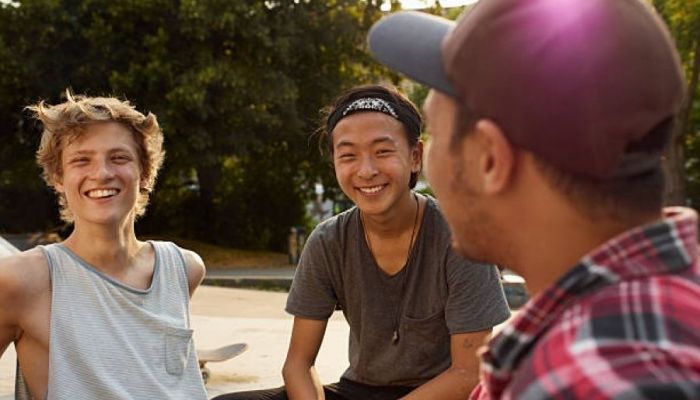Talking with teens
18 May 2022

Unique program helps teens navigate challenging relationships
Words Dawn Volz and Simone Worthing
Recognising the uncertainty and pitfalls of teenage years, Love Bites is a respectful relationship education program for young people that has been facilitated in schools across Australia for many years.
Established by NAPCAN (National Association for Prevention of Child Abuse and Neglect), the program began at a local high school on the mid-north coast of New South Wales, where teachers were concerned about some of their students who appeared to be in disrespectful and unhealthy relationships. In a show of community support, Love Bites began as a group effort between health workers, police, domestic violence services and teachers to address this problem by developing a prevention program for young people.
In co-ed schools, interactive sessions are conducted with participation by both male and female students to discuss and explore respectful relationships in a collaborative effort to address problems that may arise.
TRAINED FACILITATORS
Salvation Army Family Violence and Early Intervention case managers Annie Berrell and Sonya Button have completed the Love Bites training activities through NAPCAN and now run the program following requests from schools. Annie works in Sydney and Sonya in Wollongong. They also offer one-on-one sessions with teenagers who come to The Salvation Army services for help.
The Love Bites program has been developed as a flexible model that allows those working with young people to utilise the programming to fit in with their setting and meet their needs at a local level. It also includes a specific section on domestic violence.

Acknowledging the complexity of adolescence, as young people contend not only with life-changing physical, intellectual and social changes but also begin to explore sexuality and romantic relationships, Annie says, “We are trying to get teenagers to think, understand, and reflect on what are healthy relationships and what is okay and not okay. Most of them are in relationships already or will be soon.
RED FLAGS
“We discuss red flags, early warning signs and following their intuition that something is not quite right. One of the first activities we run is making a line down the middle of the room and presenting different relationship scenarios to the students. We ask them whether what happens in each one is okay or not, and they move to the side of the line that they agree with.”
Annie says there is no embarrassment or awkwardness about the frank discussions, and the young people respond well, being engaged and mature about the content. Guidance centres around challenging the participants’ way of thinking, and listening to their peers’ thoughts and opinions gives a powerful dimension to the interaction.
“In every break, we also offer the kids the opportunity to come and speak personally to us. We can provide services in the local area so they can make their own contact.”
“Another focus area is consent,” says Annie. “We go through the laws around consent and discuss it openly, talking about how they would directly check consent with a person and think about it themselves."
PRE-TEENS COMPONENT
With the onset of puberty starting at an earlier age than previous generations, and with such a range of sexual content available online, the Love Bites program has now been expanded to pre-teens. Love Bites Junior focuses on developing respectful relationships for those aged 11-14.
The program starts in Year 7 and includes frank and open discussions about abusive behaviour, bullying, gender roles and stereotypes, sexual harassment, homophobia, jealousy, supporting friends and seeking help. There is specific Love Bites material, including role plays and activities, for students in Years 7-10, Annie says, commenting that when it comes to educating young people around healthy relationships, the younger the better.
CHALLENGING STEREOTYPES
“We like to challenge myths and stereotypes – challenge the young people’s ways of thinking – and give them time to think and reflect on these things,” says Annie. “It’s such an amazing opportunity to capture so many young people at that stage of their development.
“To be with such a group of kids at one time and hopefully be able to guide and teach them about making good choices and have strong expectations of how to be treated in a healthy relationship in the future is a real privilege.”

Comments
No comments yet - be the first.